A tale of two summers as Alaphilippe takes Barguil's limelight at the Tour de France
Quick-Step rider claims second stage win to cement lead in mountains competition
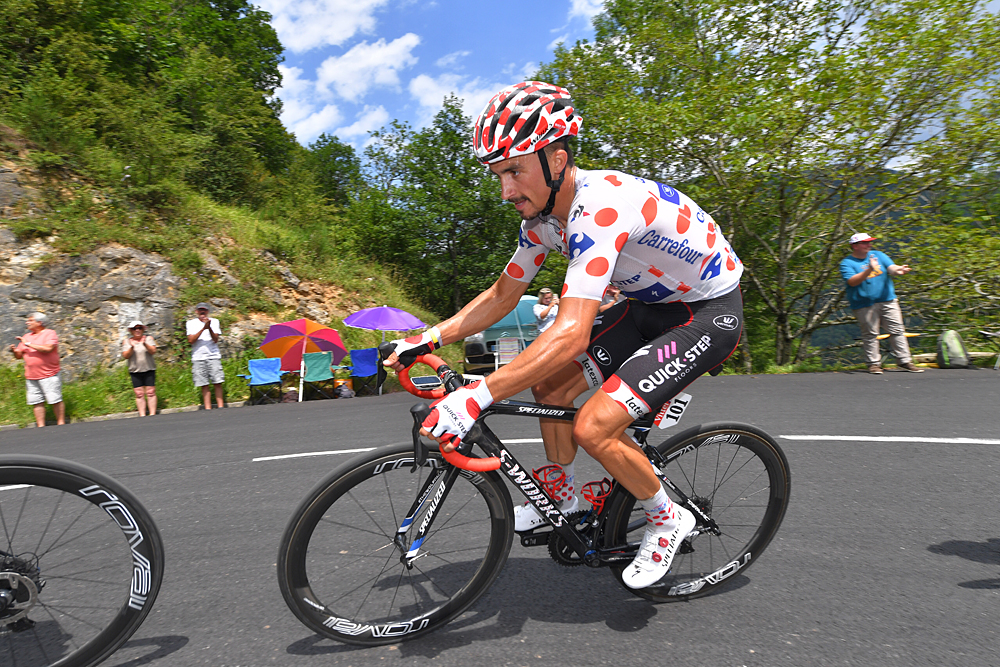
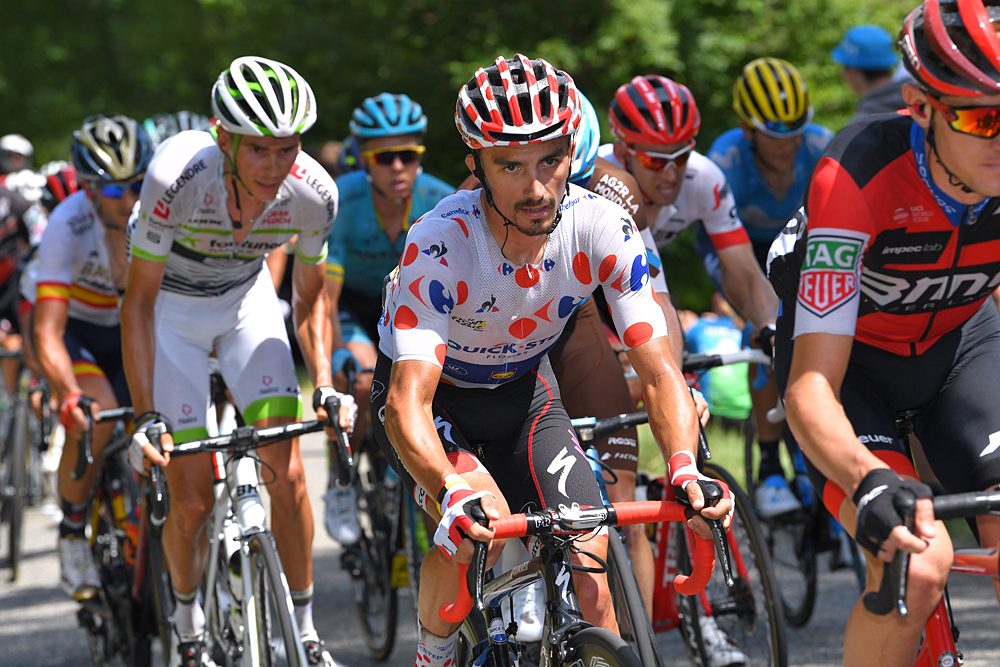
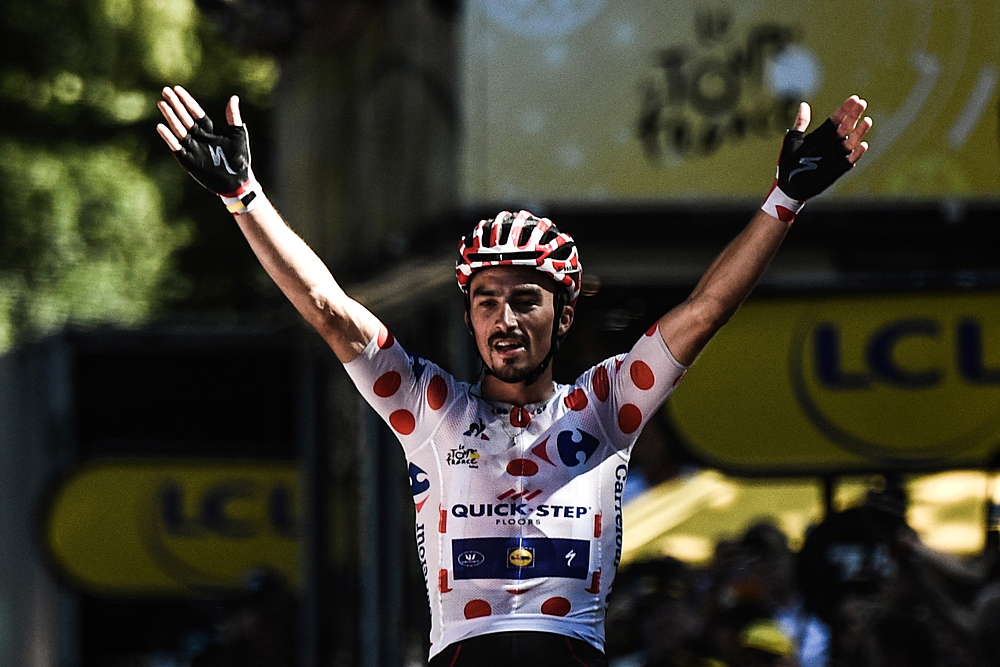
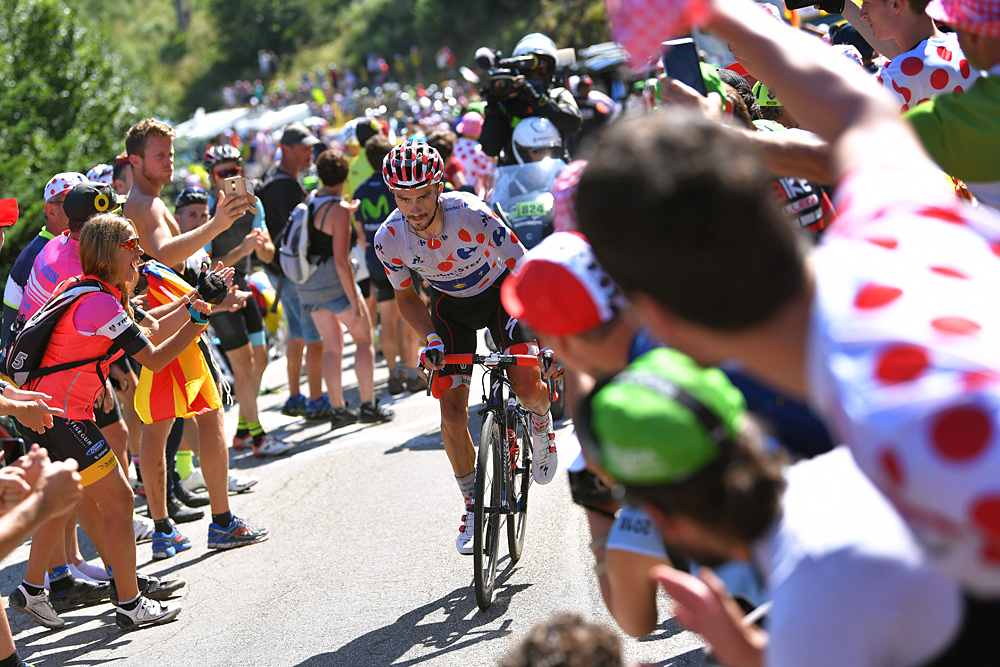
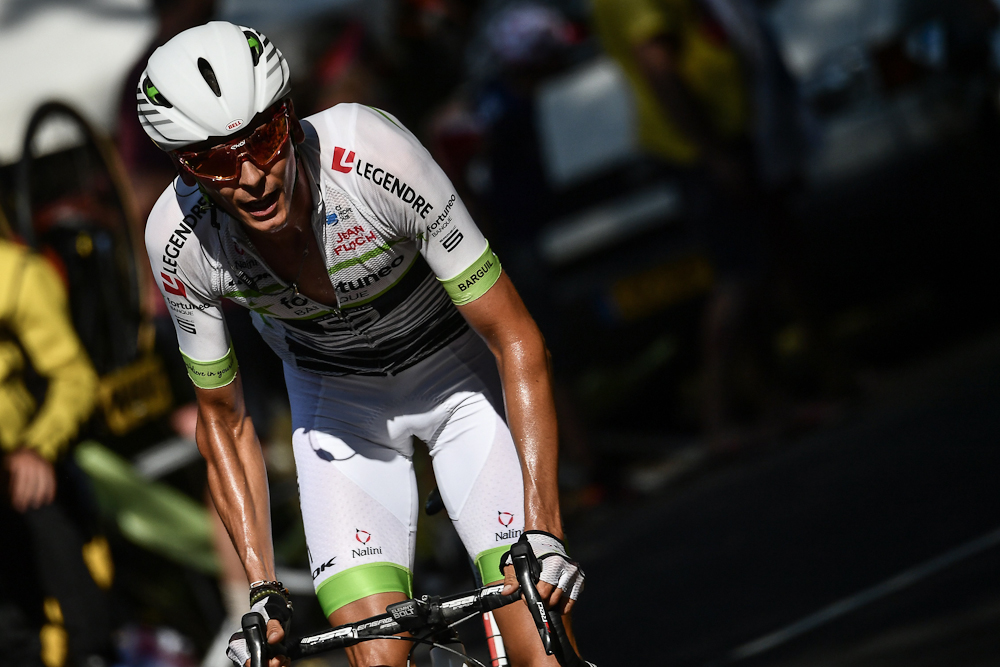
A tale of two summers. As Warren Barguil (Fortuneo-Samsic) was distanced from the break on the lower slopes of the Col du Portillon on stage 16 of the Tour de France, it must have been hard to avoid feeling like last year's man, not least because Julian Alaphilippe (Quick-Step Floors) was among the riders disappearing from view. An hour later, Alaphillipe would land his second stage win of this Tour in Bagnères-de-Luchon and cement his lead in the king of the mountains classification.
Twelve months ago, that polka dot tunic belonged to Barguil, who claimed two stage wins and commanded a sizeable portion of the home media's attention to boot. An earlier crash on the descent of the Col de Menté had limited his capacity here, but, in truth, the Breton has been subdued ever since his switch from Sunweb to Fortuneo-Vital Concept at the turn of the year.
"I have to be honest, the context is more complicated than last year," Barguil said on Monday's rest day. "I'm not a machine."
A year ago, Alaphilippe sat in frustration on the side-lines after a knee injury had interrupted his season and ruled him out of the Tour, but the Frenchman's search for lost time has been fruitful on this year's Grande Boucle. A winner at Le Grand Bornand on the Tour's opening days in the Alps, he repeated the feat on the race's first Pyrenean installment after he caught and passed crash victim Adam Yates (Mitchelton-Scott) on the tortuous descent of the Portillon.
"I knew the last kilometres because I had reconnoitred the stage with my friend Bob Jungels, and it was a help to know the route. I knew it was a technical, dangerous descent. I knew that Yates was 15 seconds ahead, but I didn't know he had fallen until I came past him," said Alaphilippe.
Yates' attack on the way up the Portillon definitely fragmented the day's early break, but Alaphilippe performed well to limit his losses to the Briton to 22 seconds over the top of the Portillon and he then began to chip away at that advantage on the drop towards the finish.
"I tried to show some fair play when I realised he crashed. I looked behind and saw he was 100m behind me, but he looked to be in pain and cautious on the corners, so I had to go full on to finish. That's racing. I could have crashed myself," said Alaphilippe.
Get The Leadout Newsletter
The latest race content, interviews, features, reviews and expert buying guides, direct to your inbox!
It is the second time on this Tour that Alaphilippe's devil-may-care descending has helped him shave corners to smooth the path to stage victory, though he has been nicked painfully by the other side of the razor, too, most notably when he crashed on the descent of Vista Chinesa en route to 4th place at the Rio 2016 Olympics.
"I never learned how to descend, it's just something inside of me. You have to know whether to take risks or not, and you have to stay focused and vigilant," Alaphilippe said. "I'm not the best descender in the peloton, but I certainly prefer descending to climbing. You need to have confidence in yourself – but not too much."
A spicy stage start
There was controversy early in the stage, meanwhile, as the race was neutralised for 15 minutes after police used pepper spray in a heavy-handed attempt to break up a demonstration by the farmers' group 'Pour que Vive La Piège,' who were protesting the reclassification of agricultural land in the area. The liquid was blown back into the peloton into the faces of several riders, who needed to stop and was out their eyes before continuing.
"I don't have much to say about that, we've had a hard day and I was suffering even before this incident happened. Some riders got some pepper spray in their eyes, but I didn't," Alaphilippe said. "To be honest, I was already very tired when we stopped because I'd been trying to get in the break and made a lot of efforts."
After the race resumed, the break finally went clear with Alaphilippe safely aboard. He led over the Côte de Pamiers and Col de Menté, and he took second on the Col de Portet-d'Aspet and Col du Portillon to stretch his lead over Barguil in the mountains classification to 49 points. Although the battle remains open mathematically, all of the momentum is with Alaphilippe.
Like Barguil a year ago, Alaphilippe – who lies 31st overall – has faced repeated questions this past week as to whether he sees himself as future contender for the general classification on the Tour. Like his fellow countryman, he tends to downplay his prospects.
"I was very focused on the Classics in the early season and I achieved what I wanted there. Now I'm achieving what I wanted in the Tour," Alaphilippe said. "Maybe the future will prove me wrong and I could one day become a GC rider, but I'll leave thinking about that to the future."
The unfortunate Barguil, meanwhile, reached the finish line in 19th on the stage, 6:29 down on Alaphilippe and wearing the scars of his crash. There are still two mountain stages to come, but it's hard to avoid the feeling that this isn't his year.
"I'm disappointed," Barguil said. "I crashed on the descent and it wasn't the same race for anymore. It's frustrating. People expect lot from me – I expect a lot from myself – but the Tour doesn't give you any gifts."

Barry Ryan was Head of Features at Cyclingnews. He has covered professional cycling since 2010, reporting from the Tour de France, Giro d’Italia and events from Argentina to Japan. His writing has appeared in The Independent, Procycling and Cycling Plus. He is the author of The Ascent: Sean Kelly, Stephen Roche and the Rise of Irish Cycling’s Golden Generation, published by Gill Books.